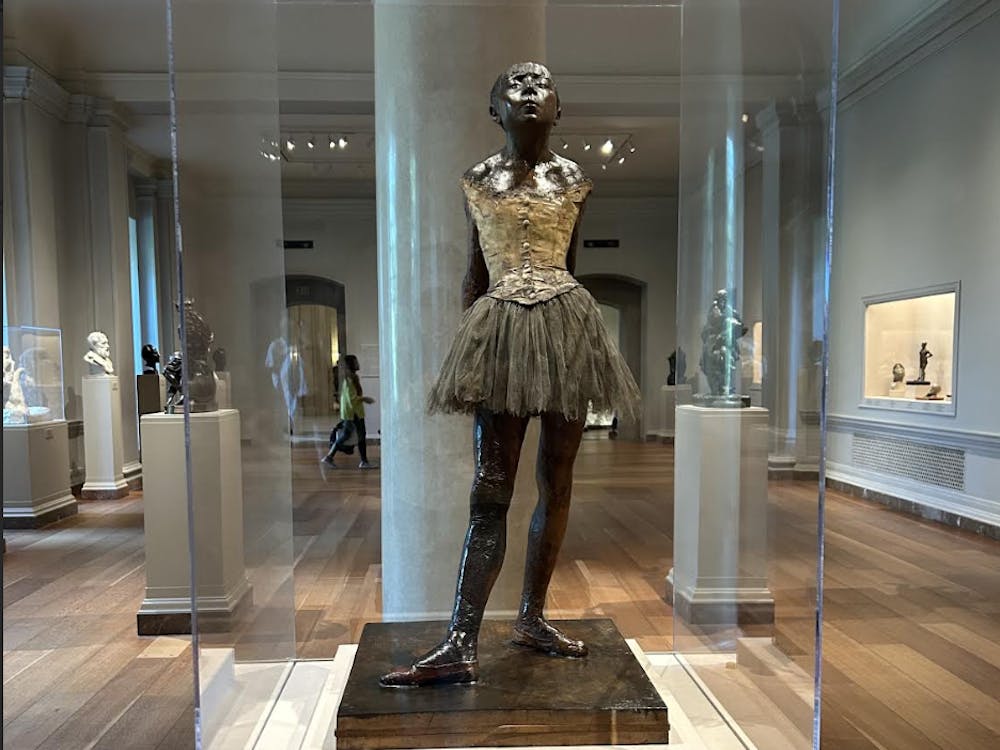On TV it seems like every third person is a serial killer.
Dexter, Showtime’s serial killer who kills other serial killers, is never at a loss for victims. He doesn’t need to look far into Miami’s underbelly to find depraved murderers.
Besides Dexter, almost every other mystery or police procedural show likes to try its hand at unraveling the mechanizations of a twisted serial-killing genius. FOX’s Bones has had at least five such villains in its eight year run. CBS’s The Mentalist has had about half a dozen. Even USA’s more light-hearted Psych has delved into morbid psychology with the killers Yang and Yin.
Now seems to be the time of the serial killer. He (and every now and then, she) has ascended to a premier position in entertainment.
So perhaps it’s the perfect moment for FOX’s The Following to arrive. This new series stars the ever famous Kevin Bacon as down-on-his-luck investigator, Ryan Hardy. Hardy is called back to the FBI to address the resurgence of Joe Carroll, a notorious serial killer he once helped capture. But perhaps the most interesting part of the new show is its focus on the eerie (if somewhat improbable) idea of using the Internet to mobilize scores of Americans with latent serial-killing tendencies into one formidable force.
Overall, it’s an exciting show. The two main leads, Kevin Bacon and James Purefoy, are very compelling. The pilot episode is especially good, with its dark and fast-paced storytelling. It’s hard to pinpoint exactly why, but the show has an enthralling feel to it. In some ways, it’s reminiscent of Dexter’s transcendent first few seasons. Critics have been divided in their response, but The Following has had some impressive ratings.
Of course, the new series has its problems. For example, it treats Edgar Allan Poe’s “The Raven” like some kind of bizarre cultist poem. Forget the fact that every high school student should be familiar with Poe’s work. (Also, a poem can’t exactly be out of the mainstream if Baltimore’s football team is named after it.) And the second episode falters with the inclusion of some unbelievable details. (One guard outside Carroll’s ex-wife’s room? Really? Even after Sarah Fuller’s police-surrounded house was compromised?)Other than that, The Following has promise.
The social media aspect (Carroll’s way of communicating with and instructing his followers) is bizarre but fascinating. Even if it’s not completely realistic, it’s an interesting mechanism for exploring modern obsessions and online communication.
The Following is a rather gruesome show, but in a television climate ripe with serial killers, it doesn’t seem out of place. And really, can we blame the TV-watching public for its fascination with murder mystery? There’s something undeniably riveting about horribly bent human nature: We can’t look away when some disturbed individual feeds his compulsions with carnage. But it’s even better to watch our prime-time heroes take down a serial killer and restore balance to the world.
It’s a popular trope to see a murderous mastermind taunt the cops and dare them to challenge his gory fantasies. This allows for the equally talented detective/scientist/amateur police-consultant to show off his or her skills by finally outsmarting the villain. Of course, the killer never goes down without a fight, and there is always a price to pay. Sometimes the villain brings out an unknown darkness in the protagonist, and we stop to reevaluate our notions of right and wrong.The serial killer story is a common one, but that’s probably because it’s so good.
One of its best attributes is that it provides opportunities for exploring human psychology. Most specifically, these shows allow viewers to see from a distance how humanity can go wrong. Serial killers are often an extreme example of a regular person, in the sense that their actions (while obviously inexcusable) make some level of sense. Dexter’s brutality, for example, may be interpreted as an extension of natural human longing and frustration.
In general, murder-mystery plots hinge on identification with the “good” and condemnation of the “bad.” But the best shows complicate this dichotomy with a flawed hero and a villain whose sympathetically tragic backstory gives insight into his illness.Take Dexter, for instance. Trauma twisted his development early on. As an innocent child, he witnessed his mother’s gruesome murder. He is a killer, sure, but one haunted by a past that will never give him peace.The show opens an interesting debate on nature versus nurture when we are forced to examine what turned these characters into monsters.
It’s worth examining why we like these morbid shows so much. But their appeal for most people doesn’t seem to hinge on schadenfreude or gore revelry. Instead, high stakes, interest in the human mind and rooting for the good guys keeps us invested.
In that case, there doesn’t seem to be anything wrong with indulging in a little serial killing.




